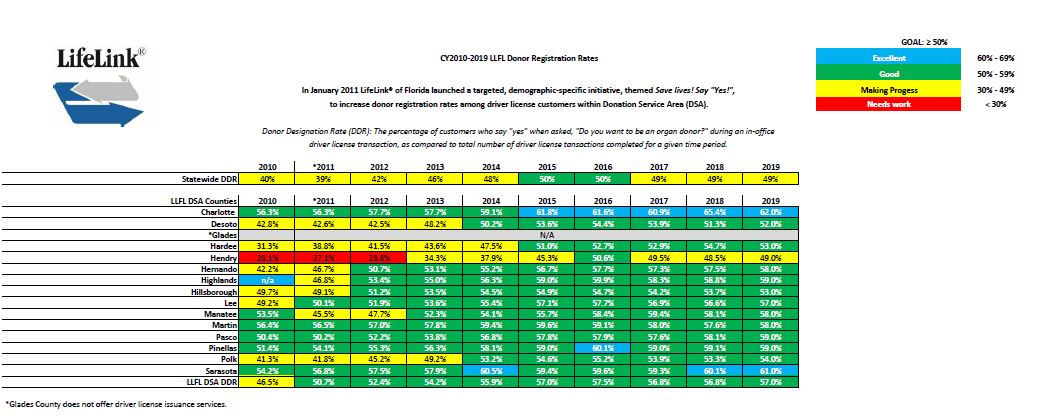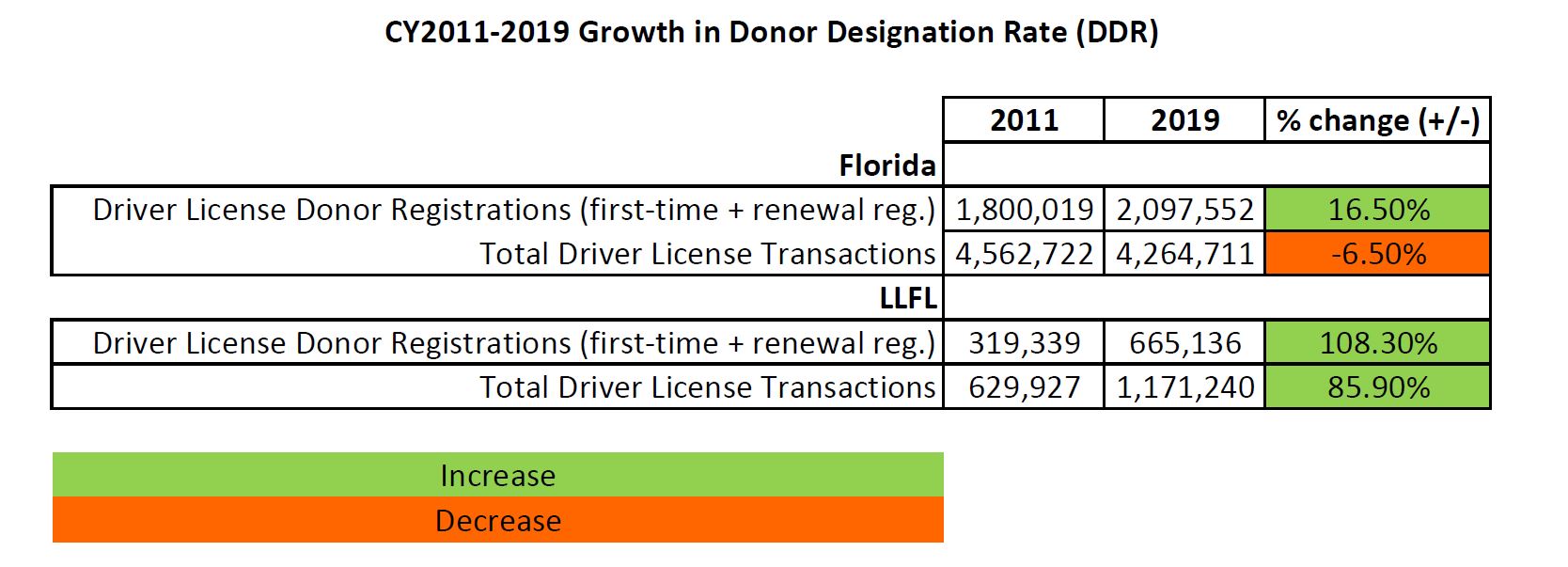Save lives! Say yes! Increasing donor designation rates through targeted, demographic specific public education: Turning opportunity into outcomes
Betsy Edwards1, Paula Lawrence2, Marty Sellers3, Jean Davis2, Ruth Duncan Bell2.
1LifeLink of Florida, Tampa, FL, United States; 2LifeLink Foundation, Tampa, FL, United States; 3Emory University, Atlanta, GA, United States
Introduction: Our donation service area (DSA), LifeLink of Florida (LLFL), serves 15 counties on the west coast of Florida (FL). We have a Public Affairs (PA) department responsible for education and outreach efforts focused on organ and tissue donation throughout the DSA and includes collaboration with local driver license (DL) and tax collectors’ (TC) offices. Transitions in DL issuance responsibilities in the state provided an opportunity to strategically target offices in our DSA based on their unique area demographics. We report the success of this eight-year effort positively impacting donor registrations (DR) and overall donor designation rate (DDR) in the DSA and state*.
Methods: In 2011, LLFL PA department began a focused, standardized approach targeting relationships with the Department of Highway Safety and Motor Vehicles (DHSMV) and county TC offices in the DSA. In 2013, state legislation mandated transition of DL issuance services from DHSMV operated offices to county TCs. A revised strategic plan was developed tailoring outreach to individual county demographics, office logistics and messaging capacity. Education included installation of mural style artwork in county buildings to increase awareness of organ and tissue donation (Tree of Life) and standardized training provided to staff. It also identified “Donation Champions” to lead efforts increasing DDRs in their community and employees with personal connections specific to organ and tissue donation (Connect to Cause) to increase awareness and ultimately DDRs among DL customers. Due to noted success, Donate Life Florida elected LLFL PA staff to lead a committee and replicate best practices throughout the state resulting in increased service area and statewide DDRs monthly and annually.
Results: Statewide DDRs increased from 39% in 2011 to 49% in 2019 with some years as high as 50% of the population age 15+. Similarly, LLFL DSA DDRs, during the same timeframe, increased from 51% to 57%. Two counties with aggressive Donation Champions and a Connect to Cause reached DDRs as high as 61% and 65% in this timeframe.(Fig 1) Individual DRs in the state increased from 1,800,019 to 2,097,552 (16.5%). DRs in the LLFL DSA increased from 319,339 to 665,136 (108.3%).(Fig 2) First-time DL DRs also increased in the LLFL DSA from 138,143 to 240,015 (73.7%), more than 20% higher than the state showing 512,177 to 776,232 (51.6%).(Fig 3)
Conclusion: Standardized education and outreach efforts and targeted relationship development in DL and TC offices in the LLFL DSA have resulted in significant and sustained increases in overall DRs.



